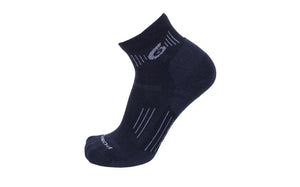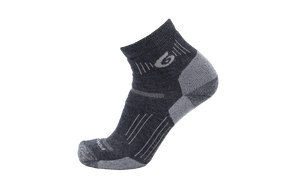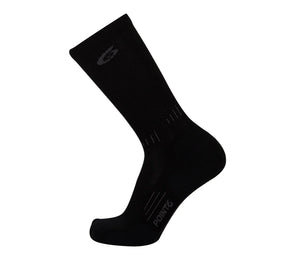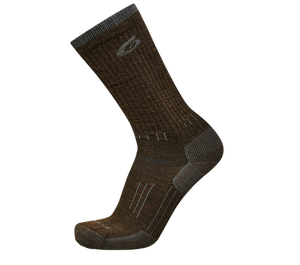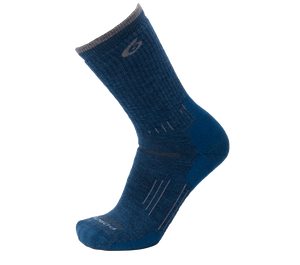
Did you know that the world buys and sells over 1,949.5 million kilograms of wool each year? It is a global commodity used to produce products for countless industries. The diverse fiber is used in fashion, manufacturing, aviation, and many more sectors.
Wool is one of the most useful fibers on the planet, yet it remains only 1% of the fibers produced worldwide. Unfortunately, 69% of fibers are made from oil-based synthetics. These low-quality materials, such as nylon, spandex, and polyester, damage our environment.
Wool, however, is nature's most ecological fiber. So, what is merino wool? There are over a billion sheep on the planet, which help produce wool products. And there are over a thousand species of sheep.
Some species produce rough, coarse wools, like the Scottish Blackface and Romney sheep. This type of wool produces carpets and furnishing fabrics. Merino and Rambouillet sheep produce some of the finest wool for clothing and other premium products.
In this guide, we'll explain everything you need to know about the luxurious fiber called merino wool. Keep reading to learn what merino wool is, its benefits, and how it compares to other materials.
What is Merino Wool?
Merino wool is a natural fiber that's harvested from Merino sheep. The wool is the finest in the world. This is because of its luxuriously soft and lightweight attributes. Many companies use merino wool to produce underwear, socks, and other baselayer clothing items.
Most likely, you've heard of merino sweaters before. These are sweaters sold by high-end brands like Tom Ford, Gucci, and Prada. But merino wool is much more than pretty to look at. It's used for functionality and fashion.
Merino wool busts through the stereotype of wool being an itchy, uncomfortable material. The fine fibers grown by Merino sheep are almost impossible to copy.
Humans have been trying to replicate natural fibers like wool for a long time. But we haven't come close. It's nearly impossible to replicate these structurally elaborate fibers.
Where Does Merino Wool Come From?
The origins of merino wool vary depending on which scholar you ask. Some believe Merino sheep first appeared south of the Iberian Peninsula around the 13th century. More specifically, the sheep breed may originate in the Southern areas of Spain.
Others theorize that Merino sheep came from the North African Plateaus (Atlas Mountains). Some scholars believe that Merino sheep were imported from Morrocco. Others believe that Spanish royals imported Moroccon rams and bred them with Spanish sheep.
Merino wool was once off-limits to commoners. It was strictly reserved for the nobility of Spain. At one point, exporting Merino sheep out of Spain was a crime. Anyone caught committing this offense would be sentenced to death by the royal family.
It wasn't until the 18th century that Spanish King exported small amounts of merino sheep as gifts. Somehow, they eventually ended up in Australia in 1797, which is now the world's largest exporter of merino wool.
Other top producers include South Africa, South America, and New Zealand. These are the areas where most merino wool is produced today.
The Difference Between Merino Wool and Other Fibers
Merino wool is, without a doubt, one of the highest-quality fibers available today. It sits in a league of its own. Most wool variants all provide a basic set of benefits. These benefits include breathability, water resistance, and warmth in cold weather.
But merino wool is a finer structure that adds softness and lighter weight to the mix. So how does merino wool compare to other materials? Let's compare and find out below.
Merino Wool vs. Cotton
Cotton is considered to be the world's most popular fiber. There are millions of acres planted with cotton each year. It's a market that's worth over $7.5 billion. But how does it stack up against merino wool?
Cotton provides good insulation, moisture control, and durability. It's highly versatile and can be used across multiple industries, like wool. Cotton beats merino wool at its low price point, but that's about all it can do.
Merino wool does not wrinkle like cotton garments. It also provides better moisture resistance and odor control. Cotton cannot compete with the luxury and functionality that merino wool brings to the arena. Plus, merino wool is much higher quality.
Merino Wool vs. Polyester
Polyester is quite an efficient fiber. It's resistant to bugs and chemicals and has solid durability. It is a popular fabric used in the fashion and sportswear industries.
Polyester beats merino wool in several areas, like moisture wicking and drying speed. But polyester is essentially a merino wool wannabe. It's designed to mimic the effects of fibers like wool and cotton. Plus, polyester is synthetic, meaning it's not eco-friendly and holds onto odors like a sponge.
Merino wool is the superior fiber. It's naturally friendly to the environment and odor resistant. Polyester is made from harmful materials like petroleum, which is not sustainable, like merino wool. While polyester may dry and resist water better, merino wool outshines the fiber in almost every category.
Merino Wool vs. Cashmere
Cashmere is made from the fur of goats. It's considered a luxury fiber that's six times finer than human hair. The fiber is great for moisture-wicking and regulating your body temperature. It is also warmer and softer than its merino wool opponent.
Merino wool beats cashmere in durability and its ability to be used in sportswear items like socks and undergarments. Cashmere is too delicate for these items, making it the preferred choice for luxury and casual wear.
Typical merino may not be as soft and warm, but it covers all bases. It's a functional, affordable, and luxurious fabric. Merino holds its own against cashmere, the more expensive fabric, which is an impressive feat.
Merino Wool Benefits
As the world's most luxurious wool, merino wool comes with all the traditional benefits of regular wool and more. The Spanish nobles hoarded this fantastic natural fiber for a reason. So let's look at the top reasons why this fabric is so special.
Made of Natural Material
One Merino sheep can grow up to five pounds of wool per year. Their wool is also environmentally friendly and biodegradable. This means your merino clothing will never end up in a landfill. But how is this possible?
Wool is made out of keratin, the same protein our hair is comprised of. When wool is thrown away, the organisms in our environment can break down the material. This makes merino wool sustainable and safe for our planet.
On average, merino wool fabric can break down in about 12 months, as opposed to never with synthetic fibers.
Keeps You Warm and Dry
Wool is naturally designed by its mysterious creator to be life-sustaining. Sheep can live in all types of climates. Wool keeps them cozy and safe, whether in bone-chilling temperatures or exhaustive heat.
You'll experience the same benefits when you wear a merino wool garment. You will be comfortable in the winter and the warmer seasons.
Plus, merino wool will keep you dry. To get a little scientific, merino wool fiber is naturally porous. This means it's naturally absorbent. So when you're feeling the heat at an inside event or during your workout, merino wool will wick away that pesky moisture.
Great for Layering
Merino wool layers extremely well since it's lightweight and highly insulative. Layering merino wool will help you stay warm and comfortable when the weather gets cold. It gives excess heat a way to escape while keeping the frigid air out.
If you've ever layered polyester or spandex at the gym, you'll know it's not ideal. Heat gets trapped in your clothing, and you feel like you're sitting in a sauna. However, Merino wool maintains breathability during activities, so you'll always feel comfortable.
Odor Resistant
As we discussed earlier, merino wool fiber naturally absorbs moisture vapors. But this also adds additional benefits like odor control. Merino wool absorbs smells caused by bacteria and stops them in their tracks.
Synthetic fibers, like polyester and spandex, absorb sweat and oils in a not-so-pleasant manner. These odors build up inside the synthetic fibers. And instead of neutralizing them like wool, they make the stink smell worse. This is why merino wool is so beneficial. You can stay out longer without having to worry about body odors.
Luxurious and Soft
While traditional wools can feel cozy, none compare to the feel of merino wool. Merino wool fibers are one-third the size of human hair. Our hair can feel pretty soft and luxurious when we take care of it. So when you feel merino wool threads, imagine tripling that softness.
And remember how we said that cashmere is softer than merino wool? Well, this isn't always the case. Some merino sheep breeders have created ultra-fine wool that's naturally softer than cashmere.
Fibers are measured in microns. The finest cashmere measures around 14 microns. The finest-bred merino wool measures around 13.5 microns. Sometimes, merino wool can measure even lower.
Resists Heat and Fire
Wool is naturally flame-retardant. And it usually won't melt like nylon or polyester. Nylon melts at just over 300 degrees, while polyester melts at 450 degrees. Even if you set merino wool on fire, it has a low burning rate and may extinguish on its own.
Wool is the most flame-resistant of all-natural fibers. The material is also favored for military and industrial use because of its unique flame resistance.
Hypoallergenic
Wool is naturally hypoallergenic, which means merino wool won't set your allergies into a frenzy. Its naturally absorbent nature helps soak up dust, dust mites, and other allergens.
Wool can also help control volatile organic compounds (VOCs). VOCs are found in many household materials like paints, aerosols, and cleansers.
Merino wool helps eliminate these compounds, which can also help you sleep better at night. Anyone with allergies knows how hard it is to sleep during an attack. Wool is a natural solution to this problem and one that works surprisingly well.
Provides UV Protection
Ultraviolet rays are harmful to our bodies. The sun provides us with plenty of benefits, but radiation is not our friend. Ultraviolet radiation can cause premature aging, eye problems, wrinkles, and liver spots. In rare cases, it can even cause cancer.
Merino wool naturally absorbs the harmful components of UV rays. One of wool's natural functions is to prevent harmful light from reaching a sheep's skin. This makes merino wool an excellent material for athletic wear.
Wearing wool clothing while you're out venturing through the environment will keep you protected from UV damage.
Why Choose Merino Wool?
Merino wool is an amazing material, and it's well worth the investment. If you live an active lifestyle, you'll absolutely love the benefits that merino wool delivers.
If you love the outdoors and are constantly on the move, it's definitely the material for you. The fabric will take up little room in your gear since merino wool is lightweight and thin.
People who hunt, hike, or exercise will find merino wool delivers in every category. We recommend merino wool to anyone who enjoys living a clean, holistic, healthy life.
The Best Merino Wool Clothing
What is merino wool? Merino wool was once reserved for Spanish royalty. Its soft, luxurious feel was sought after throughout the 13th and 14th centuries. Luckily for us, merino wool is now available to everyone.
If you live an active lifestyle or simply want clothing that delivers comfort, style, and protection, merino wool will be your new favorite fiber.
Are you interested in trying out merino wool? We carry all types of merino wool clothing to help you live an active, adventurous lifestyle. The world is your playground, and we'll help you play hard with the best merino wool gear available. Find a store today!



